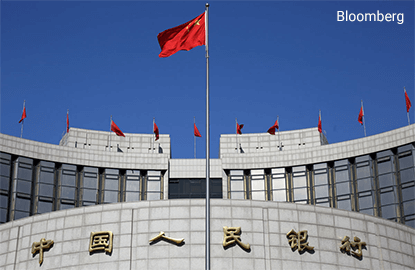
IN recent years, China’s relationship with the United States has resembled nothing so much as a hostage situation. Beijing’s enormous holdings of treasuries gave it immense leverage over Washington, which lived in perpetual fear of China choosing to not finance any new debt, or sell off its current holdings.
That scenario is closer than ever to becoming a reality — or so said the Republicans who are vying for their party’s presidential nomination. But one important point has escaped Donald Trump and company: If the dynamic between China and the US is still a hostage scenario, the roles have been reversed.
Beijing has been trimming its holdings of treasuries to prop up the yuan. Over the past year, its overall foreign-exchange reserves had fallen by about US$315 billion (RM1.33 trillion) to US$3.7 trillion.
But the scale of these sales have been relatively modest. And there are at least three reasons that a more massive Chinese sell-off of treasuries is exceedingly unlikely.
The first reason is China’s rickety economy. It has always been true that if Beijing dumped hundreds of billions of US dollars of treasuries, US yields would skyrocket and devastate the key market to which China ships its goods.
In 2004, former US treasury secretary Lawrence Summers warned about relying on this dynamic to ensure stability for the long term. But as Summers also pointed out, the arrangement “is a reason a prudent person would avoid immediate concern”.
That’s especially true in the current economic environment, as Chinese growth sputters and traders begin to short Shanghai stocks. China needs every growth engine it can muster. And that means enticing US consumers to spend by ensuring their government enjoys low interest rates.
The second reason China will hesitate to sell off treasuries is Japan. Beijing knows that if it ends its unique relationship with the US, Tokyo would gladly step in to take its place. With about US$1.2 trillion of treasuries, Japan is already only marginally behind China in the US dollar-leverage department. And two of Prime Minister Shinzo Abe’s signature policies are especially relevant in this context: keeping the yen weak and US President Barack Obama happy.
If Abe’s economic revival programme has experienced any measure of success, it’s because of the yen’s 30% drop since late 2012. That’s why Abe will want to make sure the yen doesn’t rise on a trade-weighted basis against the recently devalued yuan. If that means offsetting Chinese dollar sales, then so be it.
Abe has been as compliant a Japanese partner as Washington has encountered in decades. Abe has consistently done Obama’s bidding, whether that has involved facilitating the relocation of US military bases, passing a draconian state secrets bill or making an end run around the country’s pacifist constitution.
In the wake of a major Chinese sell-off, Abe is sure to oblige any request from Washington that Tokyo save the US bond market.
The third reason that China won’t sell treasuries is there’s nothing else it can buy. It turns out the Pentagon was right in 2012, when it concluded “China has few attractive options for investing the bulk of its large foreign exchange holdings out of US treasury securities.”
It’s conceivable that President Xi Jinping might have momentarily been tempted to use China’s currency hoard to prop up Shanghai shares, but the country’s unsuccessful stock market interventions in the last several weeks have given him little reason to think that would turn out well.
During the last US presidential election, an editorial in a Chinese state-run newspaper declared that if Washington insisted on flouting Chinese interests, Beijing should “use its financial weapon to teach the US a lesson”.
Three years later, America owes even more to China than the US$1.16 trillion it owed then. But the increase in debt holdings hasn’t translated into an increase in leverage — quite the opposite.
The US has become for Beijing what Trump was for the New York bankers he borrowed money from during the 1980s — too big to fail. — Bloomberg View
William Pesek is a Bloomberg News columnist. The opinions expressed are his own.
This article first appeared in digitaledge Daily, on September 4, 2015.